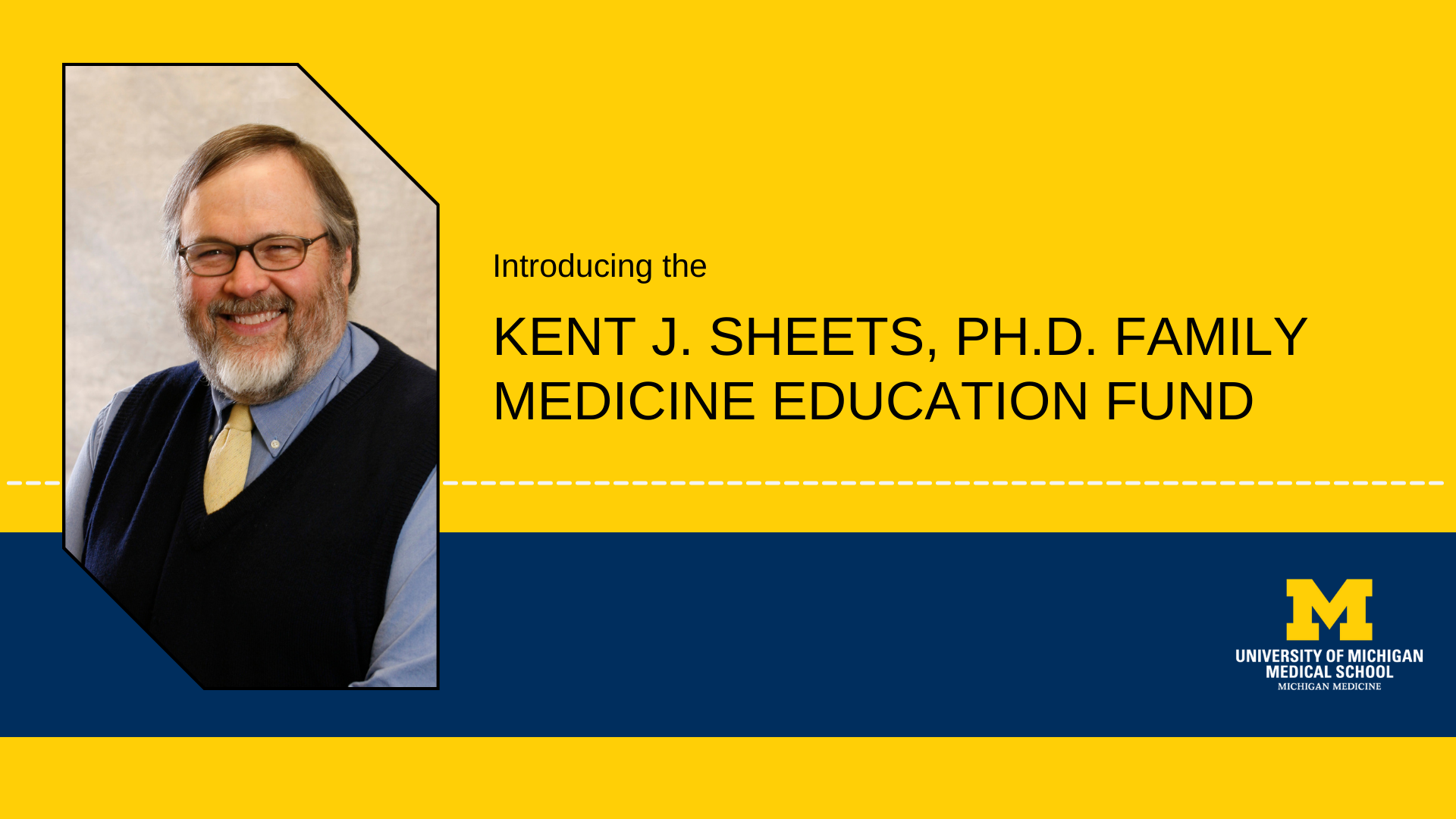Philip Zazove, M.D., as a family physician who has lived his life with profound hearing loss, is well acquainted with overcoming adversity. He’s had to prove himself repeatedly as someone who is just as competent and capable as someone who does not have a disability.
This was true from an early age, as he attended public school as a child growing up in Lincolnwood, Ill. (near Evanston and Skokie), where he was one of the first deaf children mainstreamed in the northern Chicago suburbs. He then attended college at Northwestern University.

Dr. Zazove decided to attend medical school upon graduation from Northwestern. Due to his deafness, he faced countless rejections by medical schools before finally gaining admittance at Rutgers Medical School. Despite those ongoing challenges, he was able to establish his own medical practice in Utah in 1981, and then joined the University of Michigan as an assistant professor in 1989.
Dr. Zazove has served as the second George A. Dean, M.D. Chair of Family Medicine in the Department of Family Medicine at the University of Michigan (U-M) since 2011 and is now ready to retire after a lifetime of impressive achievements.
“It’s time for someone with new ideas and energy to come in,” said Dr. Zazove, who turned 70 in 2021. “Also, I’m ready to spend more time with my wife (Barbara Reed, M.D., MSPH, professor emeritus of family medicine at U-M).”
Dr. Zazove leaves behind a tremendous legacy as a deaf clinician and researcher. He has tirelessly advocated for health care for people with disabilities and has pushed for changes that have opened access to medical school education to students who also have disabilities, not only at U-M but across the globe.
“There’s so much work to be done in improving the health and lives of people with disabilities – and most of us will develop a disability at some point in our lives,” he noted.
Dr. Zazove said that many physicians still are unaware of the health care experiences and accommodation needs of those with disabilities. Many clinicians also feel uncomfortable treating this patient population, even though over 20% of Americans (approximately 61 million people) have an existing disability.
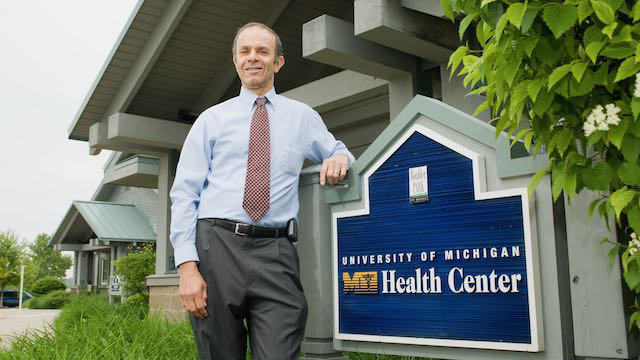
Under Dr. Zazove’s leadership, the Department of Family Medicine has led the charge in caring for those with disabilities. This includes implementing a tab in the electronic patient record that alerts medical staff and physicians when a patient needs special accommodations. He and other Family Medicine faculty also have played a role in advocating for making changes in Covid vaccine sites layouts so that patients with all types of disabilities can use them.
Dr. Zazove and faculty also have helped increase basic awareness in the medical community that those with disabilities deserve equal access to quality health care. This includes addressing inappropriate technical standards for admission to medical schools; the provision of accommodations that are appropriate for medical students; and working with state and national organizations to support medical professionals with disabilities.
Carrying Forth Dr. Zazove’s Legacy
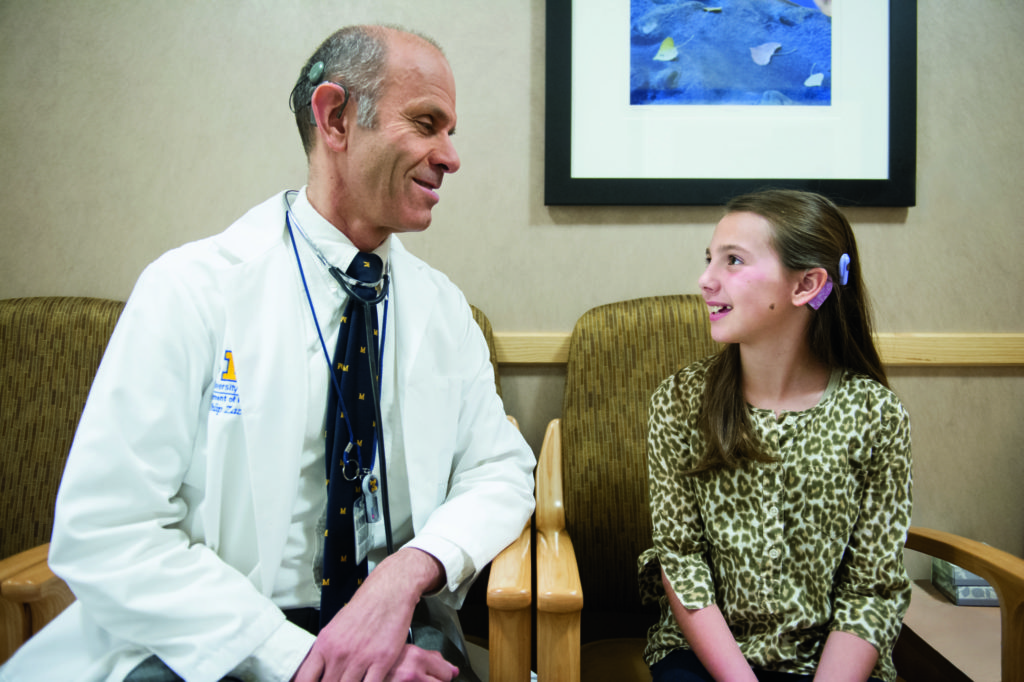
To commemorate all that Dr. Zazove has contributed to the Department, to his patients, especially those who have disabilities, and the impactful research he has conducted and published over the decades, the Department of Family Medicine is establishing the Philip Zazove, M.D. Disability Health Endowment Fund at Michigan Medicine.
The fund will promote and support disability efforts in the Department of Family Medicine and across Michigan Medicine, including patient care, research, education, and community outreach, with an overarching goal of access, equity, and inclusion.
Some of the programs the Department has established during Dr. Zazove’s tenure to help those with disabilities include:
- The U-M Adaptive Sports and Fitness program, which aims to increase awareness about, knowledge of, access to, and participation in adaptive sports and fitness among people with and without disabilities at U-M and in the greater Ann Arbor community.
- MDisability, a collaborative program focused on improving the inclusion of people with disabilities in healthcare research, education, practice, and community engagement. MDisability also hosts a summer internship for students who wish to learn more about health care for people with disabilities.
- Providing medical students opportunities to learn about research related to people with disabilities and providing medical care to people with disabilities in a Disability Health Elective and/or an American Sign Language Elective.
- Facebook Live events focused on providing health information to those who are deaf.
- The Docs with Disabilities podcast, which provides a forum for physicians working in the profession to discuss how they provide health care and conduct research while living with a disability.
- Michigan Medicine’s Deaf Health Clinic, the only clinic of its kind in Michigan, located in the U-M Dexter Health Center. The clinic serves deaf patients from across the state.
- Prescription to Play, which connects individuals living with spinal cord injuries (SCI) in southeast Michigan to local adaptive sports resources. The program also aims to achieve increased awareness of adaptive sports among local healthcare providers and individuals with SCI.
- Work with the University of Michigan Admissions Committee to level the playing field for applicants with disabilities, resulting in acceptance of highly-qualified students with disabilities to the University of Michigan Medical School.
Examples of research Family Medicine faculty have conducted in the area of disability include:
- Dr. Zazove’s EAR-PC study, which utilized an electronic alert to remind clinicians to ask patients aged 55 years and older about hearing loss. The study found that the electronic prompt significantly increased awareness of hearing limitations and audiology referrals for at-risk patients. Read more.
- Research that uses data to improve efficiency, quality, and health outcomes in the areas of aging, disability, and health disparities. Specifically, researchers have studied how regular wellness visits for those with disabilities such as multiple sclerosis or spinal cord injuries can prevent hospitalizations. Read more.
- Studying the rate of wellness visits among those with a disability and how the effect of laws, such as the Affordable Care Act, influenced how often this patient population saw a primary care physician.
- Assessing disability policies and practices in family medicine residencies.
- Identifying structural barriers that students face when entering medical school and the ongoing challenges they encounter once they are admitted. Read more.
- Determining how best to support contraceptive decisions, particularly for people with disabilities and/or chronic medical conditions. Read more.
- Assessing the impact of having disabilities, such as hearing loss, on hospitalizations and emergency room utilization.
“We have an amazing group of highly-skilled researchers in our department,” Dr. Zazove said. “Their expertise in so many areas, including women’s health, deafness, disabilities, adolescence, diabetes and mixed methods research is inspiring. The impact of so many of our findings on so many people worldwide has been gratifying for me as department chair. It’s why we all went into health care – to help our fellow humans.”
Charting his Own Course as a Family Physician
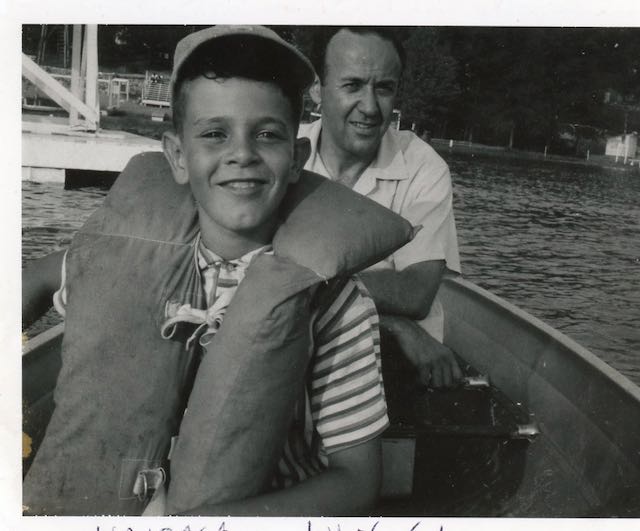
As someone who grew up in the 1950s and ‘60s, Dr. Zazove knows the daily obstacles that someone who is deaf or hard of hearing faces. Some of these barriers still exist today.
Though academic and professional expectations were low for him, his parents, Earl and Louise, both physicians, refused to send him to a state school for deaf children and instead enrolled him in public schools. He drew support and inspiration from both, especially his mother.
“Every successful younger person with a disability I’ve met had supportive parents or mentors,” Dr. Zazove reflected. “I think that’s also what really allowed me to be so successful. I was always told I could do what I wanted. Perhaps the fact that my mother grew up poor and had to overcome many obstacles to become a physician indicated to me that many obstacles can be overcome with perseverance and hard work.”
Dr. Zazove matriculated at Rutgers Medical School, then transferred to and graduated from Washington University School of Medicine in 1978. He also graduated with honors from the Executive Master's Program at the Kellogg School of Management at Northwestern University in 1994. He has authored two books, including an autobiography, “When the Phone Rings, My Bed Shakes: Memoirs of a Deaf Doctor.”
“When I started in practice, there was little support for and recognition of the health issues that people with disabilities have,” he said. “As a physician with hearing loss, I couldn’t hear the beeper go off and there was no text available to read, just a voice I couldn’t understand or even hear. Now we have cell phones that vibrate, with text that can be read and responded to.”
Along with his clinical practice and research, he has served on Department of Family Medicine and Michigan Medicine, regional, statewide, and national committees such as the Association of Medical Professionals with Hearing Losses, the Division of Deafness for the State of Michigan, the Association of Departments of Family Medicine, the advisory board for the National Center for Deaf Health Research, the Society of Teachers of Family Medicine, and the Family Medicine Department’s Diversity, Equity and Inclusion Committee.
No Regrets Pursuing Family Medicine
Dr. Zazove said he made the right choice going into family medicine. His work has allowed him to follow patients and their health through the years.
“Getting to know patients and their families well, and caring for entire families from birth to death, has been so rewarding,” he said. “The feedback from patients … is heartwarming. I know all family docs have similar experiences, as witnessed by many of the stories I hear from them.”
He added that it’s also been a pleasure guiding a department that touches on myriad aspects of health care.

“To me, the overarching experience is working with the amazing people we have in Family Medicine, the people working in all of our missions, clinical care, research, education and service,” he said. “Our faculty do amazing clinical work, including inpatient and outpatient work; have excellent teaching evaluations; conduct cutting-edge research and do community outreach in so many areas. And our incredible staff enable our faculty to be so successful.”
Dr. Zazove said that he will be around to help with the new chair transition and will forever support the Department of Family Medicine. However, he plans to spend more time with wife Barbara, their two accomplished daughters (both CEOs of their own companies), and their four grandchildren.
He will continue to be active in the sports he loves – including cross-country skiing in the winter and kayaking and swimming in the summer – and enjoying his dogs, of which there have been eight over the years.
He also plans to finish two books he’s been working on, one featuring a deaf detective and another about his grandmother, who emigrated from Russia in the late 19th century and was a leader in the Ladies Garment Workers Union of America. Additionally, he wants to devote more time and effort to the Louise Tumarkin Zazove Foundation, which was established in memory of his mother. This 19-year-old foundation provides four-year, $3,800 annual college scholarships to individuals who are deaf and hard of hearing.
Support Well Placed
George A. Dean, M.D., now in his 90s and a leader in the Jewish community, pioneered the field of family medicine in the United States and was instrumental in establishing the Department of Family Medicine at Michigan. Additionally, he contributed to U-M in 2006 for the establishment of the chair that Dr. Zazove will soon relinquish.
Dr. Dean said that he developed a close relationship with Dr. Zazove in the time that Dr. Zazove was department chair.
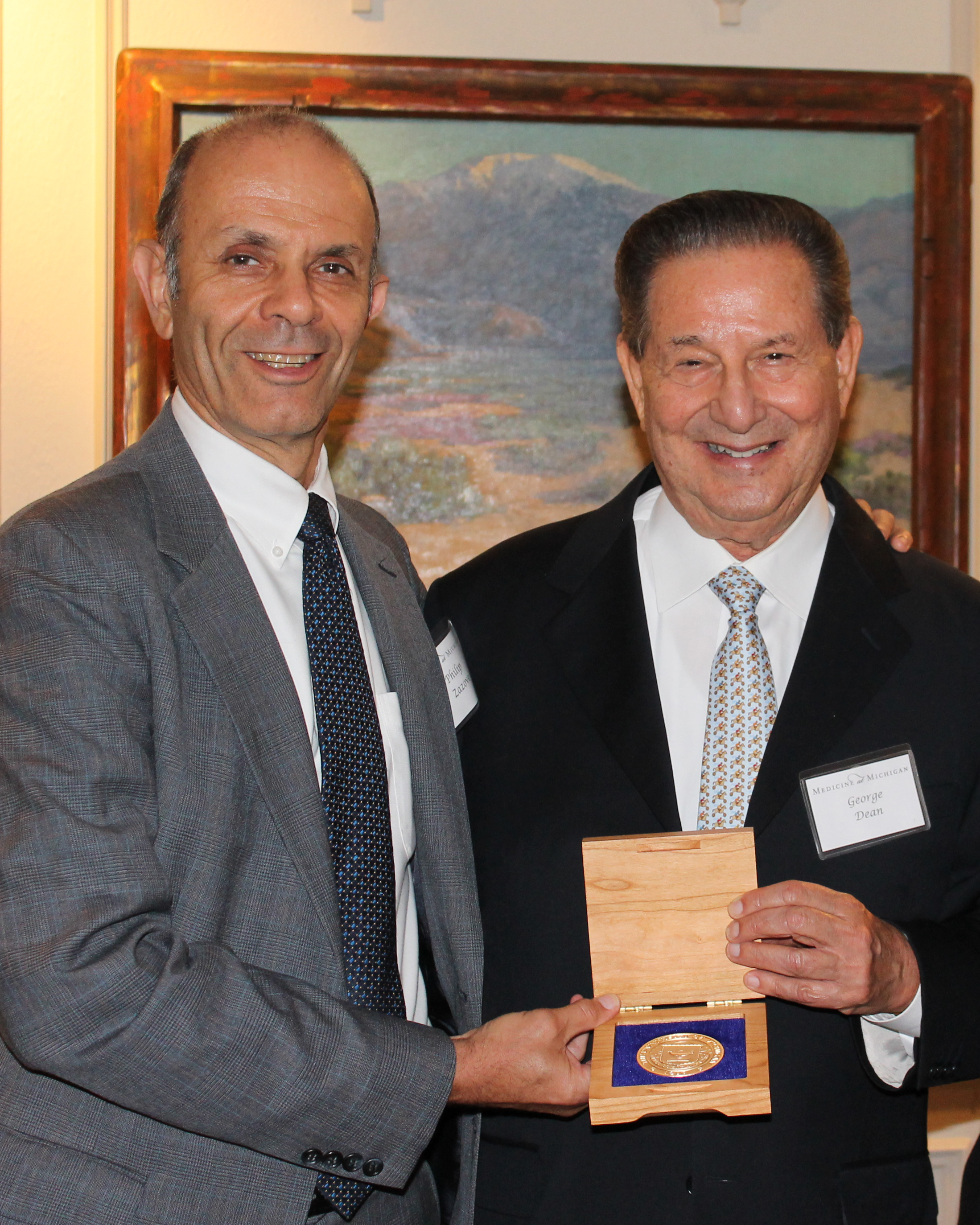
“He is a magnificent example of someone who has overcome a disability and become chair of one of the best Family Medicine departments in the country,” he said. “Very quietly and very unassumingly, Phil has been able to create this wonderful department and advanced the need for disabled people to receive excellent health care. He has gone above and beyond his duties as chairman. I can’t speak more highly about what he has created.”
Dr. Dean, who practiced family medicine in Southfield, Mich., also throws his full support behind the establishment of the Philip Zazove, M.D. Disability Health Endowment and encourages others to contribute to the fund.
“The endowment perpetuates the leadership that Phil has shown in disability health, and I think that is so important today,” said Dr. Dean. “He’s a perfect role model” as a family physician who cares for all patients with kindness and compassion.
To contribute to the Philip Zazove, M.D. Disability Health Endowment Fund, please contact Amy St. Amour at [email protected]. Donations can also be made here: victors.us/zazove


